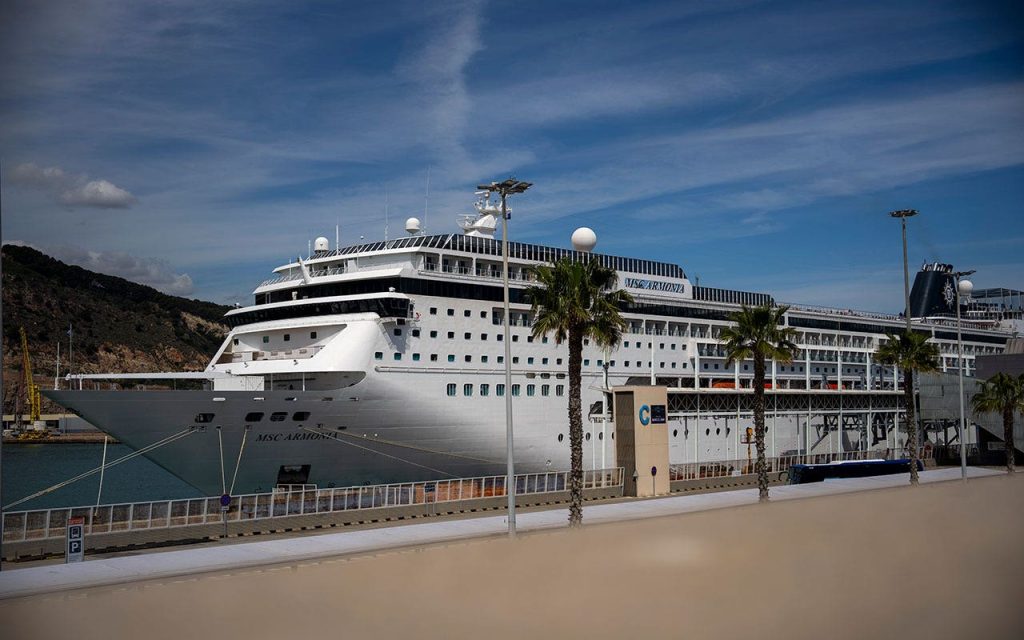A cruise ship carrying approximately 1,500 passengers was stranded in Barcelona due to visa issues faced by a group of Bolivian passengers who lacked valid documents to enter the European border-free Schengen area. Spanish government officials were working with Bolivian authorities to resolve the situation. The ship had sailed from Brazil to cover a route in the Mediterranean Sea. The Bolivians, consisting of families and children, had proper documentation when boarding in Brazil, but upon arrival in Barcelona, their visas were found to be invalid for entry into the Schengen area. As a result, 69 Bolivians were not allowed to disembark in Barcelona, their final destination.
The situation caused a delay in the cruise’s itinerary, with approximately 1,500 passengers on board the MSC Armony hoping to continue the trip to Croatia. The Bolivian Foreign Ministry stated that the Bolivian Embassy in Spain and the Consulate General in Barcelona were working with Spanish authorities and the MSC Cruises Company to address the issue. The company stated that it was collaborating with authorities to facilitate the process for the affected passengers. The Schengen area is a 29-country ID-check-free travel zone in Europe, most of which are part of the European Union.
Reports from Spanish state news agency Efe and other media outlets mentioned that the cruise ship remained docked in Barcelona while efforts were underway to resolve the visa problem faced by the Bolivian passengers. The Bolivians, who were families and children, had initially boarded the ship in Brazil with what appeared to be proper documentation but were unable to disembark in Barcelona due to visa issues. Spanish government officials were in contact with Bolivian authorities and the cruise company to find a resolution.
The stranded cruise ship highlighted the challenges faced by the Bolivian passengers in gaining entry into the Schengen area, which led to their inability to disembark at their intended destination in Barcelona. The situation required coordination between Bolivian and Spanish authorities, as well as the cruise company, to address the visa problems faced by the passengers. The incident served as a reminder of the importance of ensuring proper documentation and compliance with visa regulations when traveling to different countries, especially within the Schengen area in Europe.
As the cruise ship remained in port in Barcelona, efforts were being made to assist the Bolivian passengers with resolving their visa issues and facilitating their disembarkation. The situation drew attention to the complexities of international travel and the importance of complying with entry regulations in different countries. The delay in the cruise itinerary caused inconvenience for the passengers on board, who were hoping to continue their journey to Croatia. However, authorities were working diligently to find a solution that would allow the Bolivian passengers to be cleared for entry into the Schengen area and continue their travels.
Overall, the stranded cruise ship in Barcelona due to visa issues faced by Bolivian passengers highlighted the challenges of international travel and the importance of adhering to entry requirements in various countries. The incident required coordination between Bolivian and Spanish authorities, as well as the cruise company, to address the visa problems encountered by the passengers. Efforts were being made to resolve the situation and enable the Bolivian passengers to disembark in Barcelona and continue their journey. The incident underscored the need for travelers to ensure that they have the necessary documentation and meet visa requirements when traveling to different countries, especially within the Schengen area in Europe.


